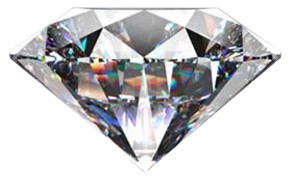„Grandparent” scam and „patent” scam
Everyone has probably heard of a „grandparent scam” (a grandson allegedly caused an accident, needs an urgent help and must pay immediately – otherwise he will get into trouble and the police will be called).
However, do you know the „patent scam”? Someone claims to have a patent (often confusing inventions with trademarks and other rights) and contacts investigating authorities so that they could help to defend the alleged rights.
A thief using a „grandparent scam” usually steals several thousand zlotys.
By a „patent scam” millions are being stolen. This process is underway.
Thus, an improved “grandparent” scam is to cheat using the “patent” scam.
Even experienced entrepreneurs are robbed by this sophisticated method.
Even judges, recklessly issuing “securing claims” decisions, which are legally issued in closed sessions without hearing the party allegedly infringing the law, are fooled by assurances that someone has allegedly infringed rights to a patent, trademark or industrial design.
Investigating authorities allow themselves to be used instrumentally by unethically acting attorneys theoretically practising a profession of public trust.
I serve with examples.
In the year 2022, police officers in firearms entered a glass factory near Warsaw. Someone invoked exclusive rights obtained in the registration mode at the Patent Office of the Republic of Poland and the EUIPO (European Union Intellectual Property Office, hereinafter: “EUIPO”). The fact that these rights have been granted “in the registration mode” – is important. This is where the problems begin, as they are granted simply by charging a fee (and without examining whether the applicant himself is infringing someone else’s rights). This mode produces not so much “keys” to success, but rather “picklocks”.
The entrepreneur who has been harassed fortunately has ironclad health and there has already been a judgment clarifying that the law enforcement authorities were misled.
The southern part of Poland has become a kind of epicentre of such infamous actions. For example, an entrepreneur producing heating devices of excellent quality was “appreciated” in a peculiar way by a competitor, who sent letters to customers accusing him of infringing intellectual property rights with his products. As a result, customers started to return the devices to the reliable entrepreneur.
In another case, a manufacturer of Christmas tree ornaments resigned from a large contract, as someone claimed that a pin made of a piece of wire connecting two elements together infringed rights to a utility model (the right granted by the Patent Office of the Republic of Poland as a result of a mistake had already been invalidated, but before the legal status was sorted out – an attractive contract had already been carried out by a manufacturer in another country).
The Polish economy should not be allowed to be further destabilised in this way.
Therefore, these examples of harassment of entrepreneurs by the “patent scam” should not end with the explanation that the made claims were unjustified ………….. . Someone who harasses others should be refrained from such unlawful practices.
The system of industrial property law in Poland is in need of a thorough overhaul, but after all it has not been proposed by the UD263 act draft.
For example, in the proposed Article 120 of the UD263 draft, first the mass granting of rights by the Patent Office of the Republic of Poland under the registration mode (i.e. easy and quick, actually limited to the collection of a fee) was prepared, followed by complicated, costly and time-consuming disputes:
Article 120.
The registration right is granted for the utility model.
Article 477
1. The provisions of Art. 470-474 shall apply accordingly.
Article 470. 1. A patent holder whose patent has been infringed or a person authorized by law to do so may demand from the infringer:
1) cessation of infringement;
2) remove the effects of the infringement;
3) compensation for the damage caused: […].
Those more, in Article 481 of UD263, it has been appropriately advised that in the case of an infringer of trademark rights, claims would also be made against the tailor of the person accused of infringing the law, since “2. The claims […] may also be brought against a person […] whose services were used in violation of the trademark protection right […]”:
Art. 481. 1. The provisions of Article 470 applies accordingly.
2. The claims referred to in Article 470(1) may also be brought against a person who only places goods already marked with a trademark on the market, if they do not come from the proprietor or a person who had his permission to use the trademark, as well as against the person whose services were used in violation of the trademark protection right. The provision does not apply to a person whose liability is excluded pursuant to art. 12-15 of the Act of 18 July 2002 on the provision of electronic services (Journal of Laws of 2020, item 344).
The Polish legislator was tasked with taking into account EU solutions in the Polish legal system. When trying to accomplish this task, a mistake was made in the UD263 draft – the legislator entered (not always consciously, it seems) into areas regulated by directives other than the one whose implementation it declared.
Fortunately, it was possible to stop the work on the text of the weak draft UD-263 of the Industrial Property Act. Those who praised the confusing draft UD-263 of the Industrial Property Act were in fact praising the “patent scam” and proposing unreflectively to deepen the phenomena described. Thank you very much for ideas such as UD263 and concepts to promote innovation. We ask – and I do as well – for better ones.
ANNA KORBELA,
patent attorney (PL),
European Patent Attorney,
legal counsel (PL),
professional representative before the EUIPO [European Union Intellectual Property Office],
representative entitled to act before the DPMA [Deutsches Patent- und Markenamt – German Patent and Trademark Office],
representative before the UPC [Unitary Patent Court]


